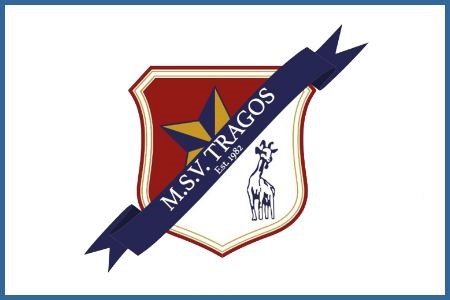The EU and Trump aren’t that different when it comes to migration, argues Melissa Siegel
This January, two hundred randomly selected citizens will discuss the future of European migration during the Conference on the Future of Europe, with Maastricht hosting the Conference’s migration programme. Studio Europa Maastricht poses the four questions up for discussion to professor of migration studies Melissa Siegel. “The European Union has taken a ‘Europe first’ policy. It’s doing what Trump wanted to do, but without admitting it.”
The Conference on the Future of Europe is coming up and migration is one of the main topics. Given your expertise, we wanted to pick your brain on the four questions on the agenda.
“They’re tough, and I have more to say about some than others. Let’s do it.”
Great. First on the agenda is asylum and migration. The question is: how can we build an asylum and migration management system which combines solidarity and responsibility in tackling the challenges arising from the migratory flows reaching the EU?
Siegel sighs. “I mean, it’s a pity that we don’t see the solidarity towards non-EU migrants that we see within the EU. We have to be careful not to single out and vilify certain countries. It’s not just Eastern European countries that refuse to take refugees; most countries don’t want to do anything above the absolute minimum, and that’s a real problem.” (text continues below picture)

Melissa Siegel is professor of migration studies at Maastricht University and UNU-MERIT, where she has also been head of the migration and development research section since 2010.

So what could be a solution?
“The EU should take a carrot and stick approach. The current allocation formula, which dictates how many migrants member states take in, is very fair. It is based on unemployment rates, GDP, population size and density. Based on that, countries should be supported financially when they take in refugees. Decent numbers, not a drop in the bucket. Flat out refusal to accept any migrants should not be allowed, and should be penalised. In short, any country which refuses needs to either have EU financing withheld from them, or be taxed or fined. Enough money that it hurts. That’s an immediate solution.”
The EU is not only struggling with how to treat those who stay, but also with those that they want to return to their home countries. The conference asks: how should the EU work with third countries to ensure smooth handling of return and reintegration of those who have no right to stay in the EU?
“The EU should be more realistic about its return policies. For example, a lot of EU member states want countries to take back non-nationals. But it’s unreasonable to ask Morocco to take back Nigerians just because they crossed through Morocco. Some governments also don’t want to take back people they feel like have been wrongly treated by the EU. They understand why their citizens have migrated irregularly to the EU, because the EU simply doesn’t have enough regular migration entrance channels! These countries argue that they let Europeans visit without any problem, but the EU doesn’t let their citizens do the same. As an American, I don’t need a visa to visit Europe, but a Nigerian does. Those countries decry the idea of a ‘fortress Europe’ that their citizens cannot enter.”
‘UM & Europe’ in the spotlight
2022 marks the 30th anniversary of the Maastricht Treaty; time to take stock of European integration. Moreover, a special conference on the future of Europe is scheduled in Maastricht from 11 to 13 February 2022. Plenty of reasons for the European university of the Netherlands to launch a new series of stories, and to publish an overview of all of our 'UM and Europe' information. Read more.
Also read
-
Healthy eating is not only good for the body, but also for the brain.
Research by Kevin Nijssen shows that elderly people who eat two handfuls of nuts every day had better memory and brain perfusion
-
A special holiday newsletter edition with the NUTRIM highlights of 2023. With these achievements we are confidently turning the page towards 2024. We thank our support and research staff and all partners for their efforts in 2023 and wish you very happy holidays.
Read the NUTRIM newsletter here


